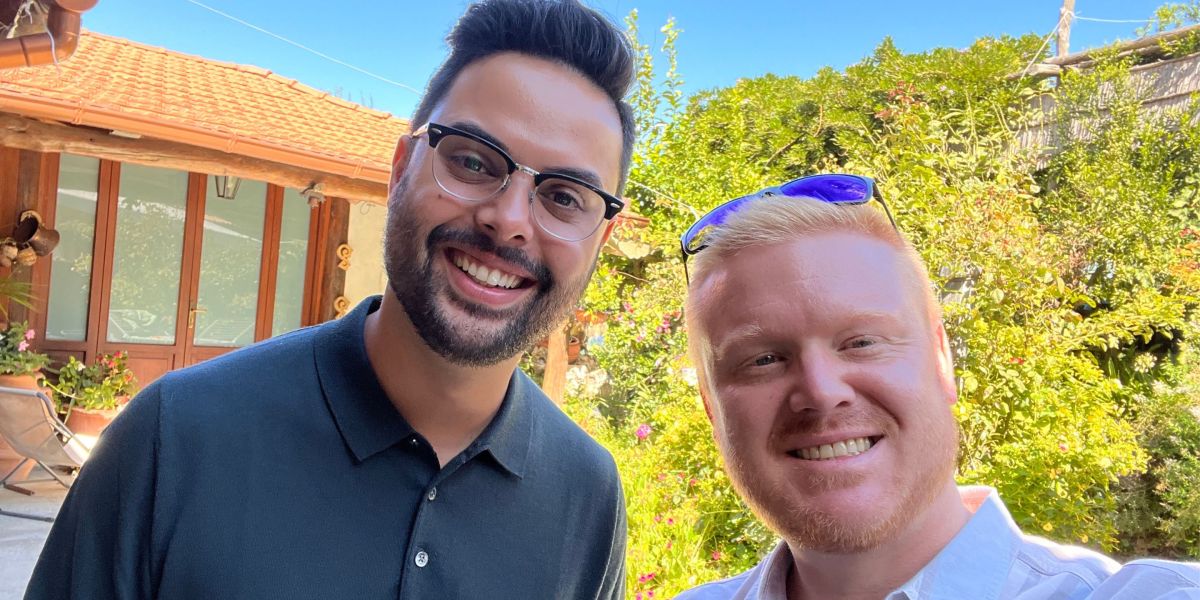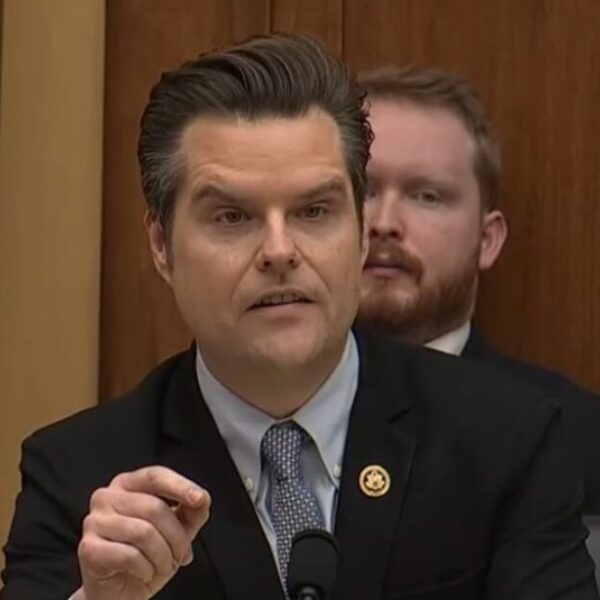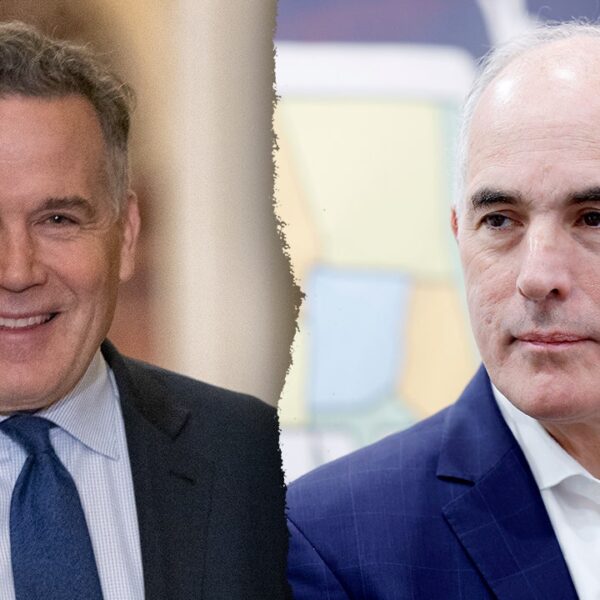Antonio Zavarce speaks to Fortune from his home in Shreveport, Louisiana. He’s packing his bags ahead of a 20-hour drive to Toronto, Canada, for a doctor appointment for his husband.
The real estate investor and his partner, Taylor Stevens, are travelling north for a simple knee injection. U.S. doctors offered 35-year-old Stevens either an entire joint replacement or ongoing anti-inflammatory medication following a motoring accident. To get the more-tolerable injection, the pair must cross the border once a year.
Soon, they hope to make an even more drastic move.
They’re done with the U.S. and want a new life five and a half thousand miles away — in Italy.
The couple are just two of a number of individuals Fortune spoke to who cited America’s polarized politics as a major factor in their decision to leave the States.
The U.S. Department of State told Fortune it does not have numbers for how many Americans have moved to different countries.
But with the upcoming presidential elections, the number of households looking to leave is likely to increase: Relocation experts told Fortune their phones have been ringing off the hook since the Trump vs. Biden debate.
Their destinations vary widely, but their feelings are often the same: Politics in the U.S. is toxic. There has been an attempted assassination of an ex-president. Rioters stormed the Capitol trying to overturn an election. These are events Americans associate with unstable, developing countries, far from North America.
America is beginning to feel foreign to them. So they’re going in search of home elsewhere.
‘People try to ram us off the road for driving an EV’
Property entrepreneurs Stevens and Zavarce know where their move will be to, but aren’t as certain on when.
The pair will be looking to settle in the northern Italian city of Vicenza—around an hour’s drive from Verona. With Stevens having lived in the area for more than a decade, and Zavarce being of Italian descent, their move will reunite them with “lifelong” friends.
“It just felt like home,” Zavarce recalls of his first time in Italy. “People looked like me, people had names that were like mine, people sounded like me, people dressed like me. My ‘otherness’ was never pointed out, and here I’m always going to be that ‘other’ person.”
In Louisiana, Zavarce and Stevens say they don’t feel safe because of the constant background level of hate for people who might be liberal.
Multiple motorists have attempted to ram their car—a Rivian R1S—off the road because it is an electric vehicle, they say.
In their most recent incident, a truck raced up behind Zavarce from a quarter of a mile away, moved into the inside lane, and began steering towards the Rivian in at attempt to maneuver it towards the road’s barrier. At the time Zavarce was driving on a bridge over a lake.
The truck then pulled close in front of Zavarce and slammed on its brakes—forcing the shaken EV driver to do the same.
Driving an EV, Zavarce believes, is increasingly being taken as a political statement given the push the Biden administration has made towards renewable energy. Donald Trump, by contrast, has lambasted the sector, describing the push for electric cars as “insane.”
“All of that has caused people to view individuals who drive EVs with the utmost … anger,” Zavarce said.
They also got tired of living in fear of homophobic harassment. They purchased the empty lots on either side of their home to create a security bubble around their house.
“The way that Italian society is … you can be and do anything you want, as long as you do it yourself and you don’t impose it on anybody else. They don’t blink twice when I say ‘This is my husband’,” Zavarce said.
Financial security is another factor.
The pair, who run realty firm Hello House, have already offloaded four American properties in order to begin investing in an Italian portfolio.
Their plan is to build up a property inventory designed to attract families visiting the nearby military base in Caserma Ederle: customers in need of home comforts and realtors who speak English.
He has already submitted business plans to the Italian Chamber of Commerce to establish his company ahead of a move.
Their relocation will likely be between 2026 and 2027.
Safety fears during the election
Assassination attempts and insurrection at the White House led UC Berkeley student Benjamin Fields to book a flight to Cameroon six weeks ahead of the election.
Fields will stay in the African nation for a total of three months across the election period, saying he fears for his safety due to political unrest.
The 26-year-old told Fortune he “never truly believed” he would be in danger in the U.S. but added: “After there was an assassination attempt … and you see how much divisiveness there is it’s like: ‘At what risk do I put myself being in the country at that time?’
“I have a feeling people are going to get violent because a lot of people feel like this is a permanent turning point for the U.S.”
The Oklahoma-born student, who studied for his undergraduate degree at New York University, describes himself as politically “not one way or the other” and believes living standards will get worse under either party.
Which is why Fields—who is two years away from finishing his PhD—plans to stay in the U.S. to build up some cash reserves but during his November trip to Cameroon he will buy land to build a home.
“You can say it’s one administration or the other but … if you look at the percentage of wealth held by the top 1% or 10% over time, regardless of administration it still goes in the same trend,” Fields said. “Housing prices can fluctuate more so … but they’re still going up. It’s like two heads of the same snake—[the parties] can be socially against each other but both in both directions are still about the money.”
Data supports Fields’s feelings to some extent. The share of the nation’s total net worth held by the top 99th and 100th percentile has increased from 23% in 1989 to 30.4% in 2024 , according to The St Louis Fed.
Field plans to work in the U.S. for around a decade and then split his time across Cameroon, the U.S. and Europe—where his girlfriend lives.
While he may feel nostalgic when he is away from the U.S., he doesn’t believe the country’s polarization will lessen: “Based on what I see now it would take some kind of Black Swan event for that to change any time in the near future—and by that I mean decades.”
‘People are looking for a candidate they see themselves in’
For the past seven years Rachel Gallagher—who grew up near Seattle—has been living in the Spanish city of Seville and watching the news back home in disbelief.
The 27-year-old, who works for Ukrainian software development company Aimprosoft, plans to stay in Europe for at least a couple more years until she receives Spanish residency. With the exception of family and friends, there’s no motivation for her to return home.


“If we suddenly someday had a stable political system that represented my values—and access to basic human rights for women weren’t up for debate every four years—that would be a big motivating factor as well,” she told Fortune.
On top of a better social life, Gallagher added, her job prospects are better in Spain. Having previously worked as a teacher, Gallagher explained: “I really think that I wouldn’t have had this career opportunity in the U.S. Tech is so saturated right now that it would be so hard to break in, so I think if I hadn’t moved abroad and I hadn’t connected with Aimprosoft, it would’ve taken me years longer to break into the world of tech. For a career opportunity it doesn’t seem like the [U.S.] would be the place to go either.”
As an established ex-pat, however, Gallagher advised Americans looking to move abroad to respect the economy they’re moving to: “Think about local prices, local housing, and what kind of impact [you’ll] have by bringing an American budget.
“Anyone planning on moving abroad should do research into housing prices before they move, and shouldn’t pay more just because they’re able to, [in order] to avoid driving up prices for locals.”














